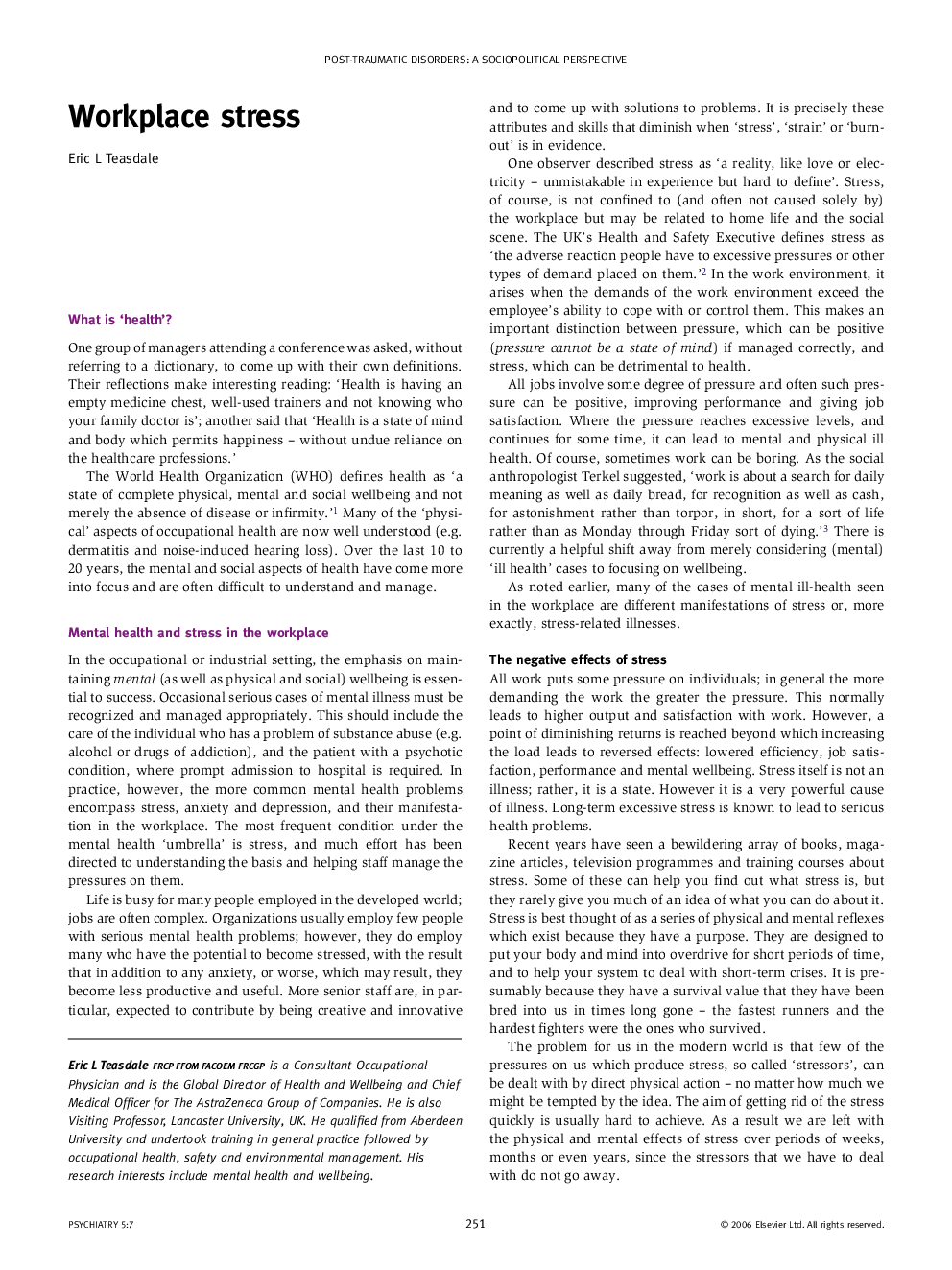| کد مقاله | کد نشریه | سال انتشار | مقاله انگلیسی | نسخه تمام متن |
|---|---|---|---|---|
| 4190332 | 1278172 | 2006 | 4 صفحه PDF | دانلود رایگان |

The World Health Organization (WHO) defines health as a state of complete physical, mental, social and spiritual wellbeing. The spiritual angle has little to do with religion in this context – it relates more to the need we all have to be treated as individuals and to grow and develop during our adult life. Many of the ‘physical’ aspects of workplace health are now well understood (e.g. dermatitis and noise-induced hearing loss). Over the last 10–20 years the mental, social and spiritual aspects of health have come more into focus and are probably more difficult to understand and manage. All work puts some pressure on individuals; in general, the more demanding the work the greater the pressure. This normally leads to higher output and satisfaction with work. However, a point of diminishing returns is reached beyond which increasing the load leads to reversed effects: lowered efficiency, job satisfaction, performance and mental wellbeing. Stress itself is not an illness; rather, it is a state. However, it is a very powerful cause of illness. Long-term excessive stress is known to lead to serious health problems. We all perform at our best when under the right amount of pressure. There comes a point when the pressure becomes too much and our performance suffers. It is important to be aware of the consequences and notice when our efficiency is beginning to fall off.
Journal: Psychiatry - Volume 5, Issue 7, July 2006, Pages 251–254